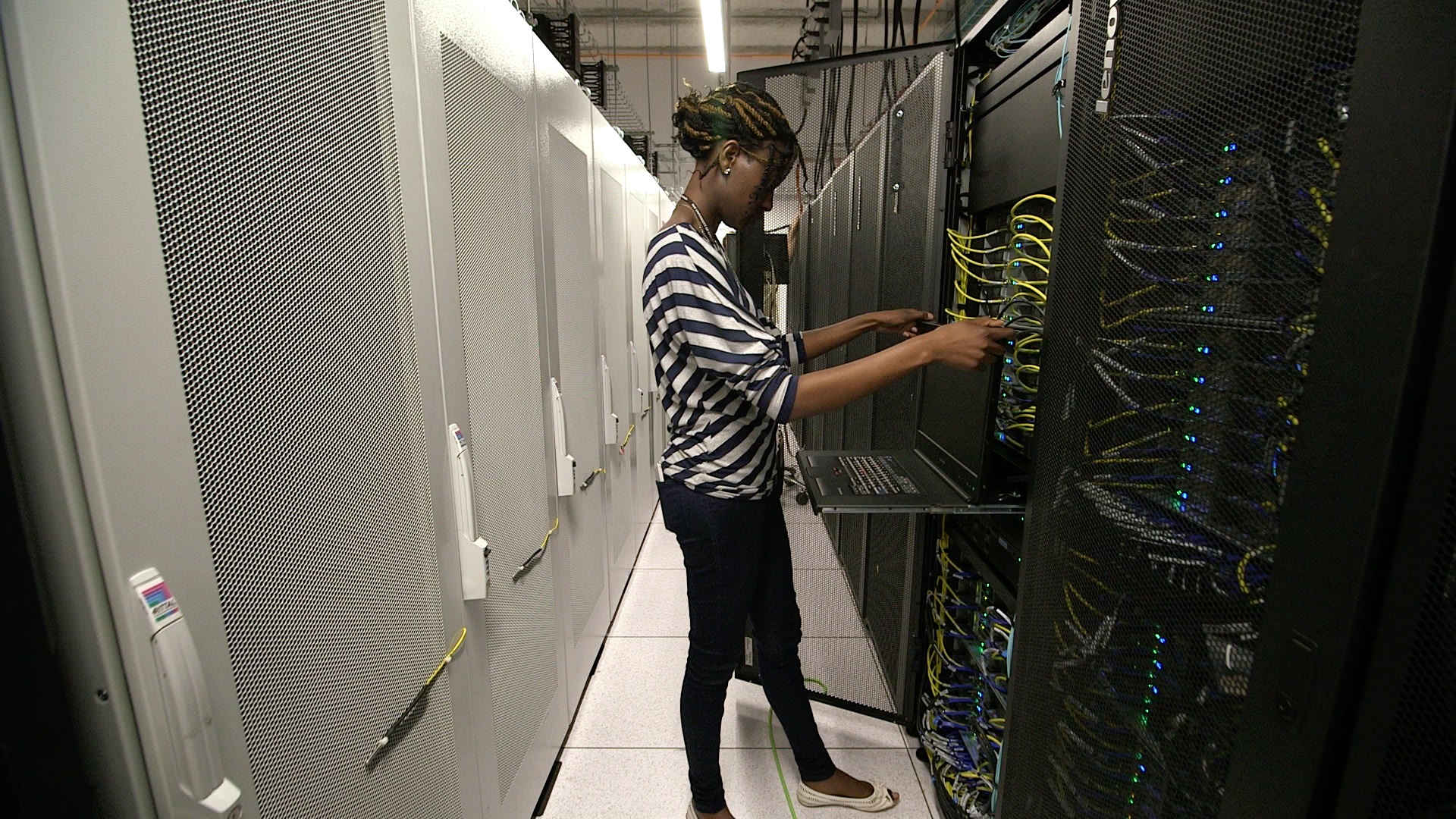 Research Computing Center system administrator Hellen Nyatsambo puts finishing touches on the Midway2 high-performance computing cluster. Photo by UChicago Creative staff.
Research Computing Center system administrator Hellen Nyatsambo puts finishing touches on the Midway2 high-performance computing cluster. Photo by UChicago Creative staff.
by Benjamin Recchie
On November 8—the fourth birthday of the Research Computing Center—RCC will commission a new addition to its high-end computing capabilities, Midway2. Housed in the University of Chicago’s data center alongside the original Midway machine, Midway2 will bring faster computation and more storage to scholars in every division and unit of the University of Chicago.
While the original Midway cluster (retroactively dubbed Midway1) has been augmented regularly with additional nodes, the swift advance of computing hardware meant that it was time to build a computer with more modern systems. Midway2 will have more than 400 compute nodes (11,200 cores), and each node will have the newest Intel E5-2680v4 processors with 28 cores and 64 GB of memory per node (40% more cores per node than the current Midway). In addition to these nodes, Midway2 will have NVIDIA Tesla K80 GPU and large memory (512 GB) nodes.
The new HPC cluster will use a high-speed, low latency EDR Infiniband network to connect all system building blocks; its switches will have 60% more bandwidth than Midway1’s switches. Midway2 will also have 2,700 TB of raw storage. Despite these upgrades, Midway2 will use energy more efficiently, consuming 34% less power per floating point operation than Midway1.
The original Midway has served the University well. Midway has been used for such breakthroughs as a better understanding of the replication of the influenza virus and investigating the formation of lymphocytes in the human body. Scientists are using Midway to discover materials that might be used to build a quantum computer; cosmologists with the Dark Energy Survey used Midway to develop the algorithm that discovered new satellite galaxies orbiting the Milky Way. Scholars of English literature are using Midway to categorize novels by sentimentality, and statisticians have used Midway to show that even the vocabulary used by members of Congress has started to shift along party lines. Midway2 promises to bring about more advances like these.
Users will still use their UChicago CNetID to access Midway2 and will be able to run jobs on either Midway1 or Midway2. A workshop on November 9 will help users get to know the new cluster and learn how to make the best use of it for their work, and RCC’s computational scientists will stand ready to help users optimize their code for use on the new machine.
RCC was started in 2012 to provide the University of Chicago community with a full-service HPC center. RCC provides researchers across all departments and divisions with visualization resources, access to hardware and software, workshops, one-on-one consulting with domain experts, and complete data-management strategies. For more information, go to rcc.uchicago.edu/midway2.